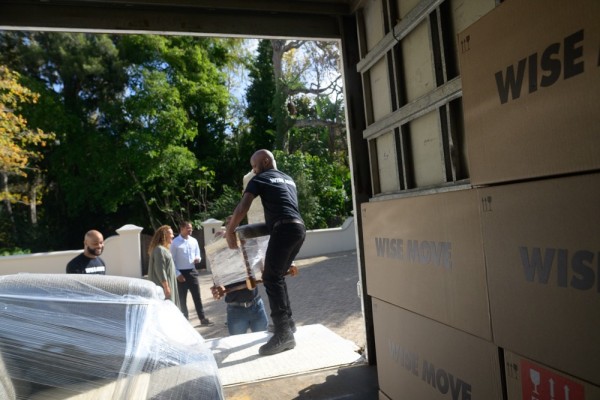
Rentals are never meant to be forever. No matter how comfortable they become, eventually, you will need to move on to something new.
When you’ve decided it's time to move on, you already know where to find the most capable and affordable mover, but is there anything else you need to do? The short answer is you need to give notice.
While this notice can be communicated via a WhatsApp or voice note, writing it is in your best legal interest.
So, what are the legalities around giving notice or being given the notice to vacate the property?
Legalities Around The South African Rental Market

As mentioned, your notice to vacate the property can be done via a letter, email, SMS, or WhatsApp. The notice needs to state that you want to leave on a specific date and are officially cancelling the lease.
The Consumer Protection Act states that the notice period cannot be less than 20 working days.
Before starting your notice letter to your landlord, make sure to reread the lease agreement you signed. In most cases, you should be legally in good standing if you have:
-
- Been paying rent
- Not intentionally caused damage to the property
- Have not been using illegal substances on the property
- And have not been using the property for non-residential purposes
If you’ve been doing any of these activities, they are all considered “material breaches”, but you could also breach the agreement if they have outlined other stipulations.
For example: “No pets allowed inside the property”, “No smoking within the property.”, and more.
The property owner must have stated in the lease agreement that the tenant needs to repair the property, such as covering holes in walls; otherwise, the tenant is not responsible for them.
But make sure to confirm the details.
On another note, it’s just a common courtesy to leave the property clean. Also, depending on the conditions you leave, you might violate the lease agreement and lose your deposit.
At the end of the day, you write a notice letter for a paper trail, and if there are any disputes, you can refer to the paperwork.
Now let’s investigate how to write an iron-clad notice letter.
How to Write a South African Rental Notice Letter

As mentioned, make sure to state the following dates when writing a notice letter. These include:
-
- The date you submitted your notice
- The date you will vacate the property
This will clarify a timeframe.
The next detail to include in the rental notice is the landlord's name, as you must address them about vacating the property.
Make sure that it is clear you are leaving the property. No need for flowery language, a simple:
“Hello [ insert landlord’s name ],
I [ insert name ] want to inform you on [ insert day you send the notice ] that I will be vacating your property by the [ insert day you will be out of the property ].”
While you can end the letter just like that, there are a few more details your landlord may want to clarify.
Your landlord will most likely want to conduct a walkthrough of the property to establish its condition and whether they are happy to return your deposit.
Be sure to include the communication channel in which you want to discuss the timings for the walkthrough. This could be simple:
“Please can we keep all communications going forward on this email thread, or, Feel free to contact me via [insert contact number]".
Next, make sure to clarify the times you’re available for the walkthrough. It’s not presumptuous to state dates and times. It's efficient.
State these timings clearly, and even include a calendar reminder. As an example, you can state this as follows:
“I will be available for a walkthrough of the property on [insert date and time ]. Let me know if this works for you.”
It’s also important to mention that the tone of this notice needs to be professional and not hostile. No one likes a hostile message in their inbox.
We’d suggest sharing compliments about the property in person rather than in writing. You can also inform them of your next address, but that’s totally up to you and not recommended.
Also, if you require a recommendation letter for your next property, start a new communication thread.
At the end of the day, it is important to move through the process honestly, with steps taken in writing around defined dates, and to complete the process on sound footing.
Now, what should you do after you’ve written a good notice letter for your rental?
What to Do After Sending Your Notice Letter

After sending the notice letter, you should plan how and when to vacate the property. Make sure your possessions are out of the property a few days in advance.
If you are liable for repairs to the property, you will want to clear the space before the walkthrough.
And if you’re concerned that your landlord is not playing ball and not paying back your deposit, you can report them to your province's Rental Housing Tribunal. There are several great forms on Evictions.org , which are Western Cape-focused, but you can find your province on the Human Settlements Portal.
Also, make sure to have a moving company that you trust.
What do our customers say?

















![How Many Moving Boxes Do You Need [Quick Guide] How Many Moving Boxes Do You Need [Quick Guide]](https://cdn.wisemove.co.za/image/blog/f402bbe3e47e09aa41a6d8370888b926.jpeg)











